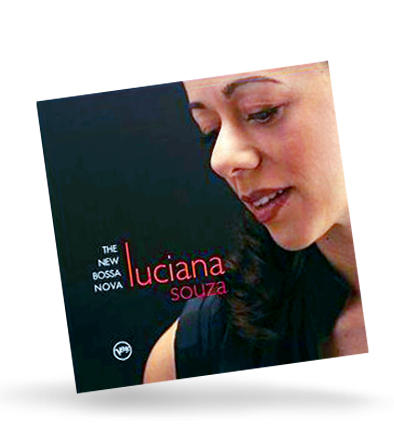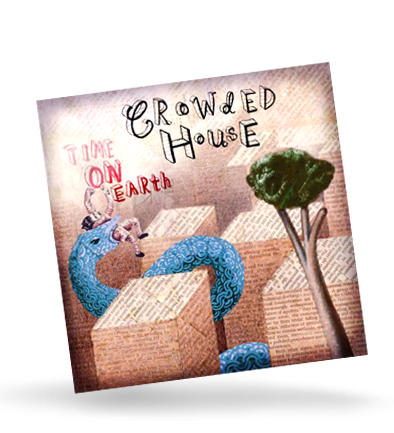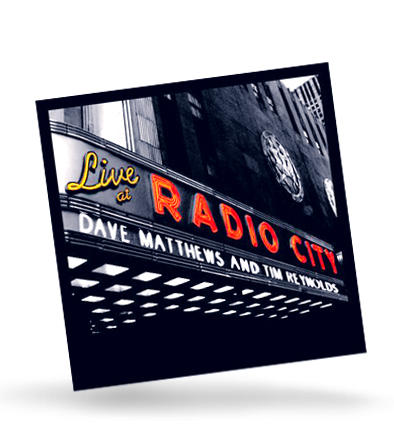DAVE MATTHEWS & TIM REYNOLDS
Live at Radio City Music Hall
RCA

Aug. 14
Matthews and guitarist Reynolds played gigs together in the days before fame struck, and last paired up for a record about 10 years ago. Here, their obvious musical chemistry is revisited in intimate versions of Matthews Band staples Crush, Grace Is Gone, Don't Drink the Water and Gravedigger, along with warm readings of Neil Young's Down by the River and Daniel Lanois' The Maker. The previously unrecorded Sister stands out here as the sort of sensitive-guy anthem Matthews excels at, while the more familiar Dancing Nancies rocks as hard as the meandering, eight-minute Lie in Our Graves does not.

Prince
Planet Earth

NPG/Columbia
July 24

Prince gets a pass because, well, he's Prince, a fact he likes to remind us of every so often with either a gangbusters tour or a throwdown performance at halftime of the Super Bowl.
But when it comes to his recorded output of late, his means of getting music to the people - either by including CDs with the purchase of concert tickets or by giving them away as freebies in a Sunday newspaper, a stunt he recently pulled in Britain - has shown far more creativity than the music itself.
Even if his comeback albums Musicology and 3121 helped lift him from his mid-to-late-1990s artistic dead-spin, they've failed to capture the public's imagination the way Prince did so freely at his 1980s creative peak.
So while Planet Earth is the best of Prince's recent efforts, it only shows glimpses of the genius that was once his Purpleness' hallmark.
It's not for a lack of variety. The album flirts with a number of Prince's most recognizable styles, from glittery pop to rock to R&B. But it doesn't push boundaries the way his albums once did.
It's a decent Prince album, which at this point might be the best you're going to get out of the artist formerly known as the Artist Formerly Known as Prince.
The best track is Mr. Goodnight which sounds like Prince remaking the Notorious B.I.G.'s Big Poppa. He's in classic ladies man form as he raps his come ons, enticing a woman by telling her, I've got a mind full of good intentions/and a mouth full of Raisinets, and later promising to screen Chocolat with her before hitting the pool. Now that's romance.
Mr. Goodnight exudes effortless, sexy charm, which is in short supply elsewhere on the record.
The album-opening title track is a clunky, if well-meaning, plea for the environment that begins with a simple piano and builds to a guitar implosion, but never finds its center.
It's not that Prince isn't having fun - Chelsea Rodgers is a full-on funk party that likely would be a blast live, and The One U Wanna C sounds straight off of Sign 'O' the Times - but you get the feeling he's simply spinning his wheels.
Prince is still Prince, of course, but Planet Earth will not be the catalyst for another purple reign.
THE NEW BOSSA NOVA
Luciana Souza
Verve
Aug. 21
A few months ago Gilberto Gil performed at Carnegie Hall and played a memorable bossa nova version of the Beatles' When I'm 64. He remarked that a lot of Beatles songs were just right for bossa nova. It raised a question: How much can bossa nova accommodate? What are its fixed qualities? An acoustic guitar with some particular harmonic voicings and a leavened samba rhythm; an overall weightless feeling. Then what?
The spare arrangements of The New Bossa Nova get a lot right. You can measure all the tiny tonal changes in the medium-range voice of Luciana Souza, a Brazilian-born jazz singer. Her pianist, Edward Simon, may never have played more airily. The saxophonist Chris Potter improvises in short, jabbing figures; he's artful, and can make you think of Stan Getz on his own jazz-bossa nova crossover records (maybe a Stan Getz who's been listening to a lot of Wayne Shorter).
But the repertory here is, with a few exceptions, West Coast pop singer-songwriter music, including songs by Joni Mitchell, Randy Newman and Michael McDonald. An interesting exception is Elliott Smith; a less interesting exception is Sting. At any rate it's here that the problems arise.
The producer is Larry Klein, a gray eminence of adult pop and also Souza's husband; their judicious choice of songs mostly avoids the super-famous or overplayed. But a fair amount of the romantic lyrics are profound or analytical in a way that seems a little too leaden for bossa nova.
Coupled with an occasional hyperprecision in Souza's singing, this all begins to make the project lose its stability. (The arrangement of You and the Girl, written by Souza and Klein, builds a perfect atmosphere of restful unease. Then the word vainglory appears.) The album is properly introspective; perhaps it just isn't sweet enough.
TIME ON EARTH
Crowded House
ATO Records
July 10
Ten years after disbanding, Crowded House was reunited last year by its songwriter, Neil Finn. Partway through recording a solo album, Finn reconvened the bassist Nick Seymour, a founder of the band in 1985, and the keyboardist and guitarist Mark Hart. One member was absent: the drummer Paul Hester, who suffered from depression and committed suicide in 2005. That's one reason the reunion album, Time on Earth, is suffused with thoughts of mortality and mourning.
Yet Crowded House has always been a pensive band, balancing melancholy and consolation in songs like its 1986 hit, Don't Dream It's Over. In the new Don't Stop Now, Finn sings, Give me something I can write about/Give me something I can cry about. With Matt Sherrod on drums, Crowded House sounds like its old self (and like Finn's solo efforts). The music harks back to the folk rock and Merseybeat of the 1960s, backing straightforward melodies with guitars and piano.
The reunited band doesn't pretend a decade hasn't passed. The 14 songs here are the thoughts of a grown-up songwriter. Silent House, written with the Dixie Chicks, speaks to an aging relative whose memory is deteriorating; English Trees contemplates the aftermath of a long-ago breakup. A few songs are upbeat, like the ironically jaunty She Called Up and the guardedly optimistic Even a Child. But Time on Earth is filled with ballads and thoughts of how transient life is, nowhere more so than in the aching, shimmering A Sigh, which acknowledges, No changing the story now.
The reunited Crowded House is to perform Wednesday and Thursday at the Beacon Theater in Manhattan.

When the South Vietnamese capital of Saigon fell to the North Vietnamese forces 50 years ago this week, it prompted a mass exodus of some 2 million people — hundreds of thousands fleeing perilously on small boats across open water to escape the communist regime. Many ultimately settled in Southern California’s Orange County in an area now known as “Little Saigon,” not far from Marine Corps Base Camp Pendleton, where the first refugees were airlifted upon reaching the US. The diaspora now also has significant populations in Virginia, Texas and Washington state, as well as in countries including France and Australia.

On April 17, Chinese Nationalist Party (KMT) Chairman Eric Chu (朱立倫) launched a bold campaign to revive and revitalize the KMT base by calling for an impromptu rally at the Taipei prosecutor’s offices to protest recent arrests of KMT recall campaigners over allegations of forgery and fraud involving signatures of dead voters. The protest had no time to apply for permits and was illegal, but that played into the sense of opposition grievance at alleged weaponization of the judiciary by the Democratic Progressive Party (DPP) to “annihilate” the opposition parties. Blamed for faltering recall campaigns and faced with a KMT chair

Article 2 of the Additional Articles of the Constitution of the Republic of China (中華民國憲法增修條文) stipulates that upon a vote of no confidence in the premier, the president can dissolve the legislature within 10 days. If the legislature is dissolved, a new legislative election must be held within 60 days, and the legislators’ terms will then be reckoned from that election. Two weeks ago Taipei Mayor Chiang Wan-an (蔣萬安) of the Chinese Nationalist Party (KMT) proposed that the legislature hold a vote of no confidence in the premier and dare the president to dissolve the legislature. The legislature is currently controlled

As we live longer, our risk of cognitive impairment is increasing. How can we delay the onset of symptoms? Do we have to give up every indulgence or can small changes make a difference? We asked neurologists for tips on how to keep our brains healthy for life. TAKE CARE OF YOUR HEALTH “All of the sensible things that apply to bodily health apply to brain health,” says Suzanne O’Sullivan, a consultant in neurology at the National Hospital for Neurology and Neurosurgery in London, and the author of The Age of Diagnosis. “When you’re 20, you can get away with absolute